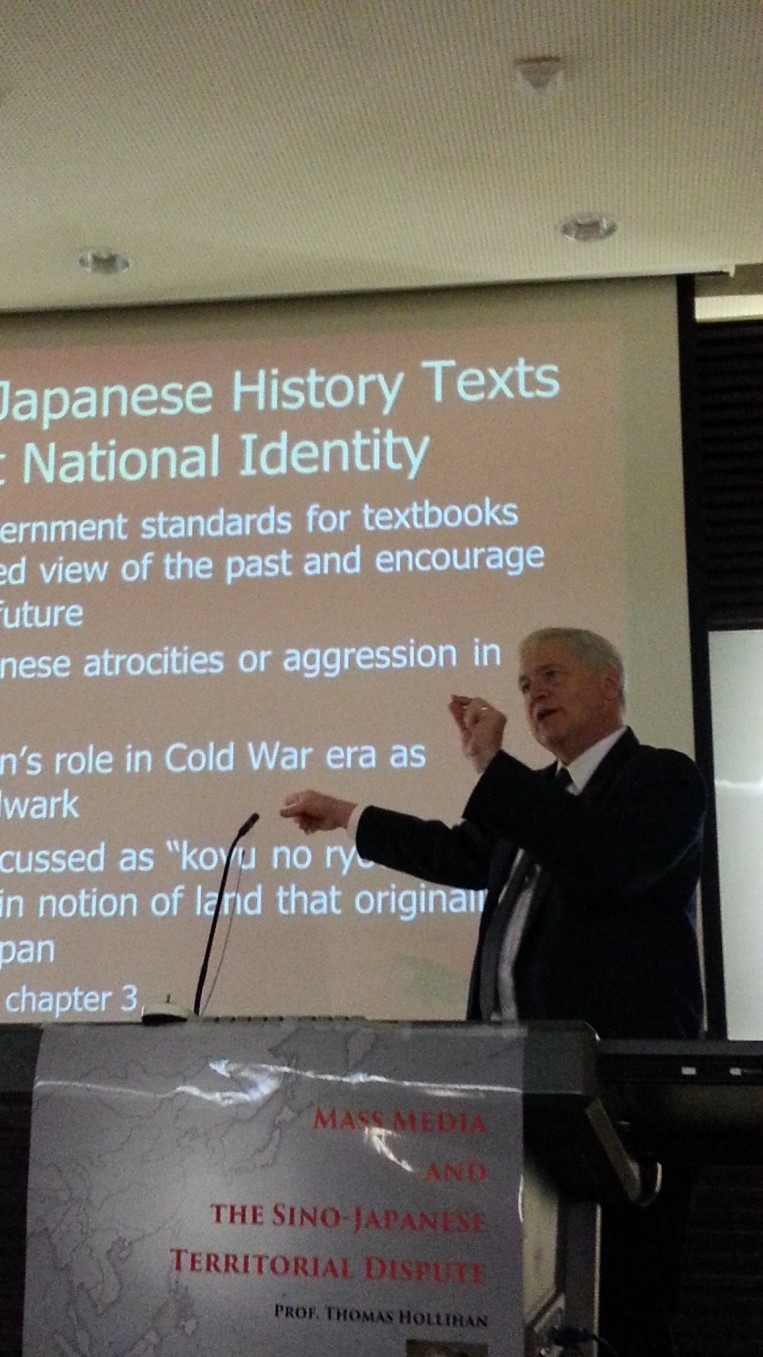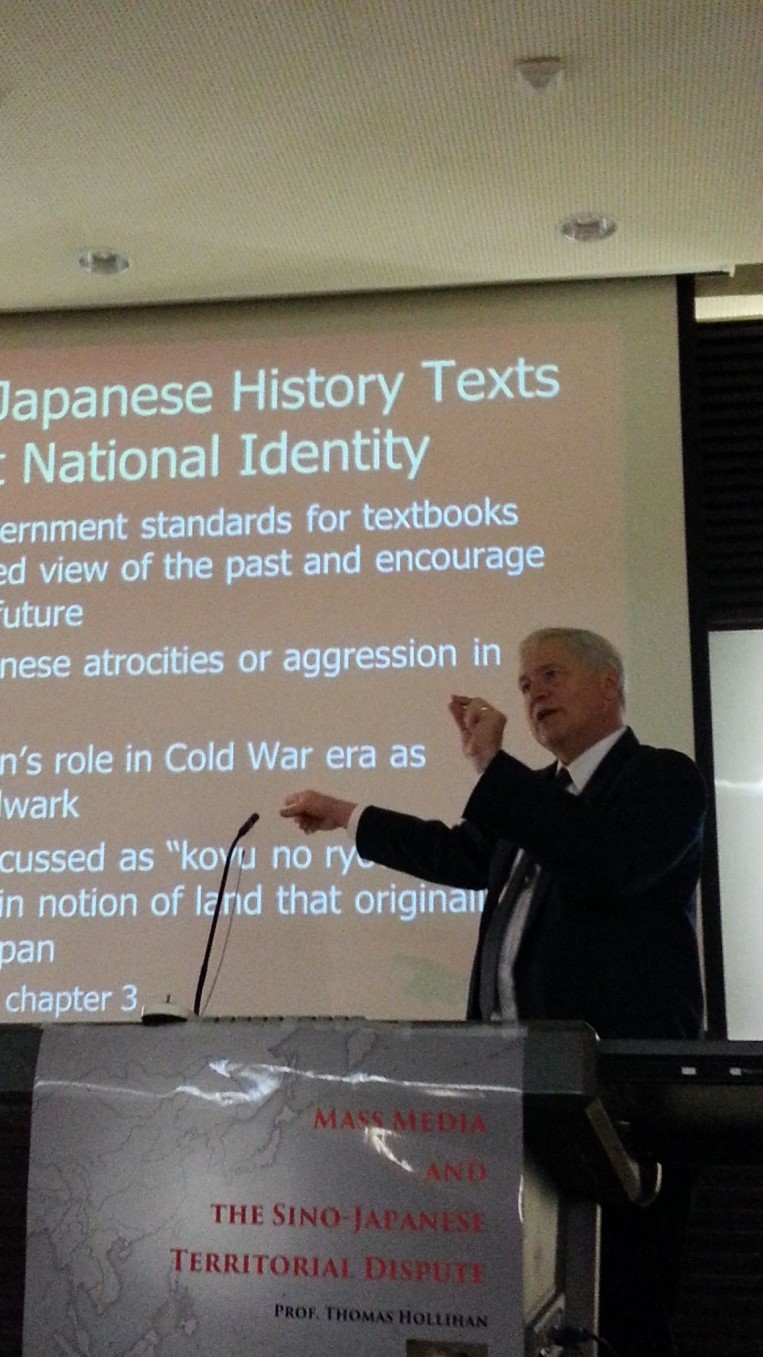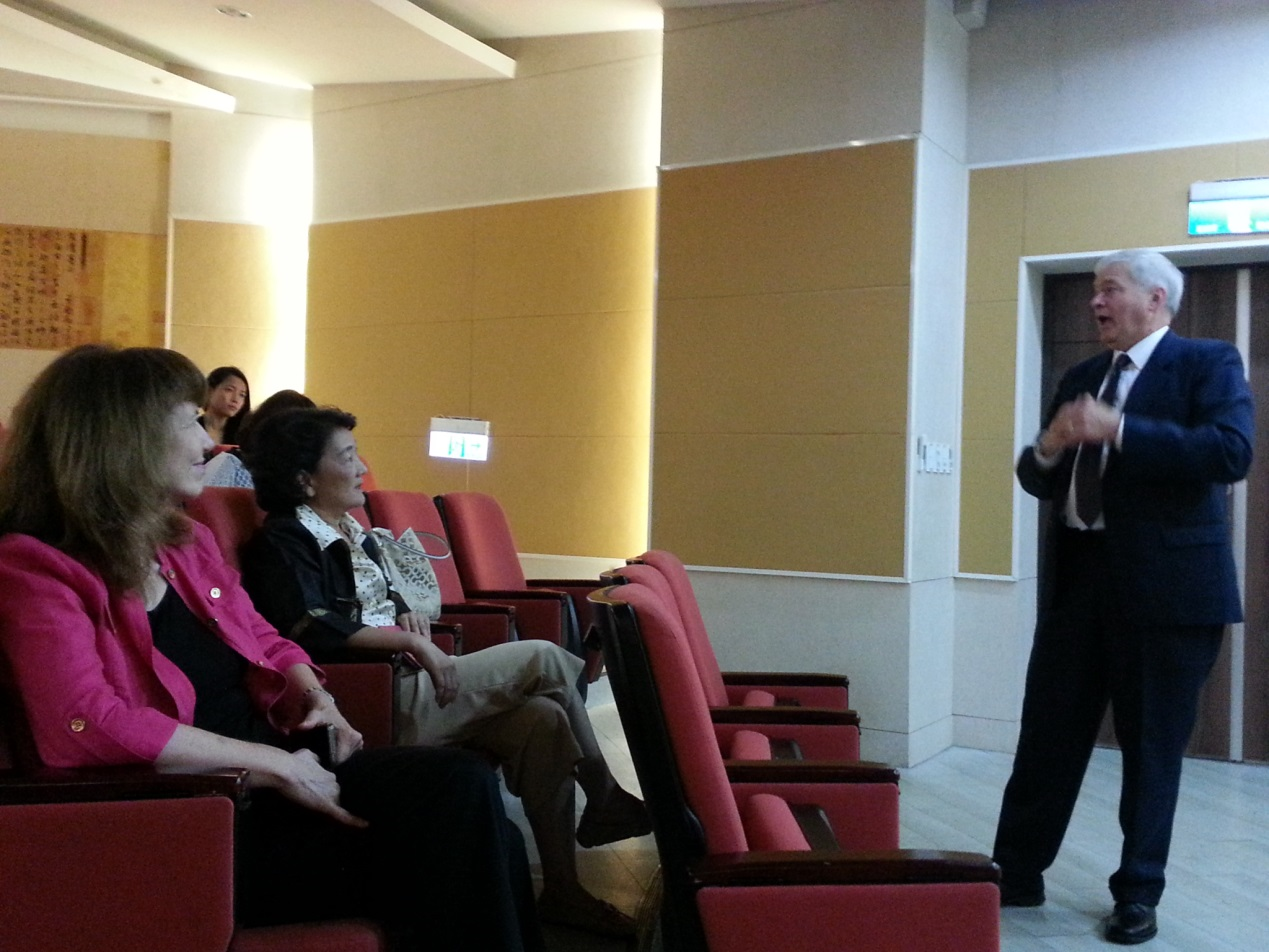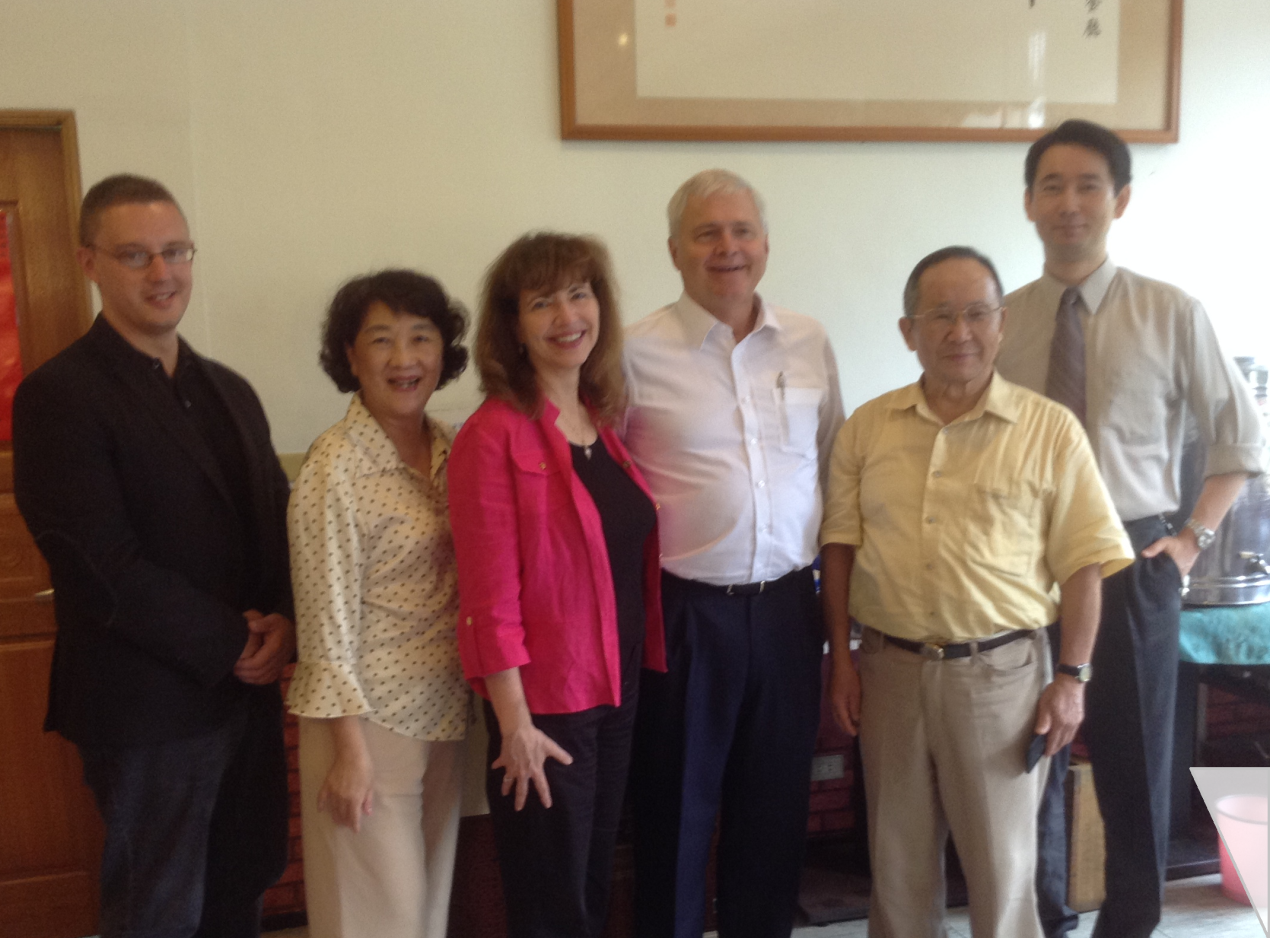USC's Professor Thomas Hollihan on Mass Media and the South China Sea
Mass Media and the Diaoyutai (Senkaku Islands) Dispute
Speaker: Professor Thomas A. Hollihan
Date: September 22, 2014
Time: 10:30 a.m.- 12:00 p.m.
Venue: National Chengchi University
Overview
AFR was pleased to invite Thomas A. Hollihan, former Vice Dean of the Annenberg School for Communication at USC, to deliver a speech on the critical topic of mass media and the Sino-Japanese territorial dispute. On September 22, 2014, he spoke for the International Master's Program in International Studies (IMPIS) and Japanese Studies Program at National Chengchi University. AFR was also grateful for the participation of Professor Patricia Riley, Hollihan’s wife and the Director of Annenberg School for Communication at the London School of Economics' (LSE).
Professor Hollihan’s recently released a new work, “The Dispute over the Diaoyu/Senkaku Islands: How Media Narratives Shape Public Opinion and Challenge the Global Order,” edited published by Palgrave Macmillan. The book examines the controversy of this topic in respect to political communication and media diplomacy.
Professor Hollihan on Chinese, Japanese, and American Media Outlooks in the Diaoyutai (Sankaku Islands) Dispute
In his speech, Professor Hollihan argues that China’s anger towards Japan stems both from past historical conflicts and from its critical portrayal in contemporary media. Japanese media tends to emphasize the fact that Japan’s media maintains a lot of international support, and that it is sometimes controlled by more conservative citizens who advocate for an aggressive stance. These conservatives criticize the current leadership’s more dialogue-based approach towards this issue. Hollihan further suggested that the administration utilizes social media to gather the support of the public.
Professor Hollihan also discussed current trends in American media, which often represents the disputed regions as unpopulated specks of land. He maintains that American media frequently criticizes Mainland China as an expansionist actor; such open criticism has led to greater tension between the US and China, independently of the vast oil resources speculated to exist in the region. Moreover, Hollihhan suggests that globalization makes the communication of foreign policy difficult because media in all forms – which can be widely accessed by anyone – inadvertently (or intentionally) shapes the public’s point of view.
Ultimately, Hollihan concluded that both Japanese and Mainland China's media outlets focus on the past while American media focusses on the present. However, he argues that all three sides lack in depth inspection or discussion about the future. Moreover, all three media actors are biased in favor of their own governments with varying degrees of criticism directed at other governments’ style of diplomatic and political judgment. He also suggests that Taiwan’s political claim towards rightful ownership of the islands came too late to be included and discussed alongside the rival positions of Japan and China. Despite this, Taiwan’s position ought to be considered seriously since its legal claim to the disputed islands is, in his opinion, the most persuasive one.
Attendees
Attendees included: Prof. of Dept. of Social and Policy Sciences at Yuan Ze University, Bonnie Peng; Prof. of Dept. of Diplomacy at Naitonal Changchi University, Teng, Chung-Chian; Director of NCCU Program in Janpanese Studies, LI, Shui-hui; Center for Foreign Policy Studies at National Chengchi University Visiting Scholar Prof. Marcin Gornikiewiczregister; Dept. of Political Science at National Taiwan University Visiting Scholar Prof. Olga Y.Adams; Ambassador Kuo, Ming-shan; Executive Director of Foundation of Scholarly Exchange, William C. Vocke, Jr.; Representative of the Mozambique Economic and Trade Office, Dr. Achilles Yeh; Secretary-General of AFR, Kwei-Bo Huang and several student representatives.


Prof. Hollihan discusses key issues in the dispute over





 256 bit SSL Encryption
256 bit SSL Encryption